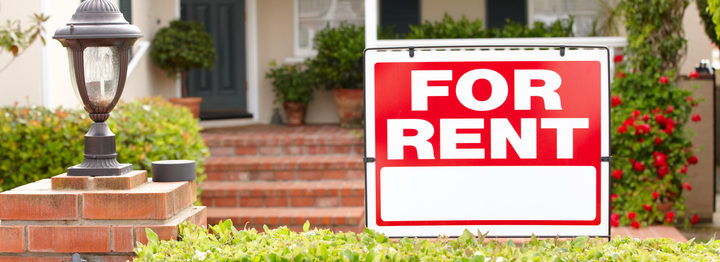
If you bring up the topic of renting a house, you’re bound to get a bunch of different tips and pointers – especially if you discuss it within the context of home ownership. But as with most things in life, people don’t always know what they’re talking about. Misconceptions abound so do your own research before believing what others say.
According to a Pew Research Center analysis of Census Bureau housing data, more American households are headed by renters than at any point since at least 1965.
From 2006 to 2016, the number of households in the United States grew by 7.6 million. Despite this steep increase, the number of households headed by homeowners remained relatively flat. Meanwhile, renters increased rather significantly from a 31.2 percent share of the market in 2006 to a 36.6 percent share in 2016.
“Young adults – those younger than 35 – continue to be the most likely of all age groups to rent,” Pew Research Center explains. “In 2016, 65% of households headed by people younger than 35 were renting, up from 57% in 2006. Rental rates have also risen notably among those ages 35 to 44. In 2016, about four-in-ten (41%) households headed by someone in this age range were renting, up from 31% in 2006.”
But even with the steep rise in renters, myths and misconceptions spread like wildfire. Whether you’re a renter, owner, real estate investor, landlord, or property manager, we’re here to set the record straight on the following fictitious ideas:
This myth is perpetuated daily by people who don’t know what they’re talking about. In simple terms, it makes sense. Renting does nothing to build equity, while mortgage payments on a house help you incrementally increase your ownership in a piece of property. But life doesn’t happen in a vacuum with one or two factors. There are dozens of dynamic factors that make each situation unique.
Nothing puts you in a riskier financial position than buying before you’re ready. Just because you can make the down payment, doesn’t mean you should purchase. Houses are money pits, and you have to account for all of the additional expenses that go into maintaining the property – including taxes, landscaping, home repairs, HOA fees, and more.
It’s also important to remember that only a very small portion of your monthly mortgage payment goes towards building equity (at least in the beginning stages). On a $1,500 payment, it’s possible that less than $500 is going towards the principal balance over the first few years. So you really aren’t falling that far behind by renting.
Another common misconception is that rent prices and terms are non-negotiable. In other words, most renters think they have no leverage in the landlord-tenant relationship. But this simply isn’t true. It’s a two-way street with plenty of room for discussion.
The amount of leverage you have, as a renter, obviously depends on the market you’re in and how much housing demand there is, but never be afraid to negotiate some of the details. This includes the monthly rate, the length of the agreement, specific clauses within the lease, and even the security deposit amount. The worst that can happen is having a landlord say no.
Just because something is written into a lease agreement, doesn’t mean it’s legal. A landlord can write anything they want, but it’s not enforceable if it goes against the rules. Take prepaid rent as an example.
“The most a landlord can ask from a tenant is the first and last month’s rent,” Mark Weisleder writes for The Star. “I know of cases where tenants have been asked to pay as much as one year’s rent in advance. Anything more than two months is not legal, so if the landlord asks for that, move in and then go directly to the Landlord and Tenant Board and ask for the return of anything paid extra. The landlord has no right to evict you for doing so.”
If you’re unsure of whether or not something in your lease agreement is legal, do some research and/or speak with an attorney in your area. You may be surprised to learn that you don’t have to follow certain stipulations.
If your landlord is also the property owner, they have the right to enter the property. However, to say that they can enter the property at any point is patently false.
Landlords who wish to enter a rental property for non-emergency issues must provide tenants with a reasonable notice (and do so at a reasonable time). The amount of time a landlord must provide varies by jurisdiction, so research the laws in your area to understand the specifics of this rule.
Hate to break it to you, but your landlord can sell your house, and there isn’t a whole lot you can do about it. You do have a few rights, though.
“If you’re on a month-to-month lease, in most states, landlords are required to give a 30-day written notice to vacate if they decide to sell,” Cathie Ericson writes for Realtor.com.
“Some areas have different laws, though, so it’s wise to check.”
You should never count on getting your security deposit back at the end of a lease agreement. While it’s possible that you’ll receive it in full, there are typically at least a couple of issues that will give a landlord the right to withhold some or all of the deposit. Just keep this in mind as you make plans for moving out.
At Green Residential, we have our fingers on the pulse of the Houston real estate market and understand there’s a time and place for renting (just as there is for buying). And as one of the leading property management firms in the area, it’s our job to make renting an easy and frictionless process for both renter and landlord.
For more information on our services, please feel free to contact us today!
